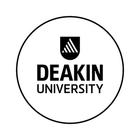Master of Science (Design for Circular Cities) (Professional)
Master of Science (Design for Circular Cities) (Professional)
Be ready to step into the job opportunities offered by the booming green economy with the Master of Science (Design for Circular Cities) (Professional). This course is situated in the cutting-edge arena of sustainable urban development through a new understanding of circularity in the built environment. You will graduate equipped…
Categories
COURSE DESCRIPTION
Be ready to step into the job opportunities offered by the booming green economy with the Master of Science (Design for Circular Cities) (Professional). This course is situated in the cutting-edge arena of sustainable urban development through a new understanding of circularity in the built environment. You will graduate equipped with the skills to succeed as a leader in the growing field of urban sustainability. The expertise you gain will enable you to help influence a more sustainable future and create environmentally resilient communities both locally and globally.
Learn how to effectively influence circular city systems from social, sustainable and environmental perspectives, with a focus on the design and implementation of urban environments that prioritise sustainable practices. Apply circular economy principles to urban challenges including public space and cultural heritage, green infrastructure, governance and policy, waste and resource use, and economics and supply chains. In the later part of this course, pursue either an advanced discipline course work or research pathway.
Ready for a career that will make a real difference?
With the world’s urban population predicted to more than double by 2050#, the need for jobs that support the transition to more sustainable cities is clear. The Master of Science (Design for Circular Cities) (Professional) prepares you to meet this demand.
Learn by doing with opportunities for global study tours and get hands-on in the applied design research lab unit, where you’ll apply design thinking and research methods to real-world problems, building innovative thinking and problem-solving skills. Opportunities to engage with industry allow you to gain invaluable experience while you study, giving you a head start upon graduation.
In the later part of this course, you will choose to pursue a dedicated pathway in either advanced discipline course work or research. Students undertaking the advanced discipline coursework pathway will focus their area of study in either environmental systems, urban life or urban systems. Students pursuing a research pathway will undertake a masters level thesis or research project.
As issues of sustainability become increasingly central to our built environment, businesses, and daily lives, your cutting-edge knowledge and work-ready skills will be highly sought after by employers.
Career outcomes
The Master of Science (Design for Circular Cities) (Professional) gives you the advanced career and research skills to meet the demand for more sustainable development practices, while meeting the predicted 18.6% growth in urban and regional planners by 2026#. As a graduate you may pursue career opportunities in areas such as:
urban design consultancies (in planning, engineering, architecture, landscape)
urban management and governance
property development and housing
circular design specialists
environmental consultancies
urban regeneration and environmental agencies.
EDUCATIONAL INSTITUTION
Deakin University is ranked in the top 1% of universities worldwide (ARWU). It is a global leader in many areas of study including accounting and finance, business, engineering, education, nursing, sport science, and sport management. It is known for its industry-based learning, with all degrees offering the opportunity for work placements. Deakin has four campuses across the state of Victoria, offering high-quality teaching and first-rate facilities. Our students love studying here – that is why Deakin University has been ranked #1 for course and student satisfaction in Victoria for 13 years (Australian Graduate Survey 2010–2015, Graduate Outcomes Survey 2016–2022 (GOS)).




